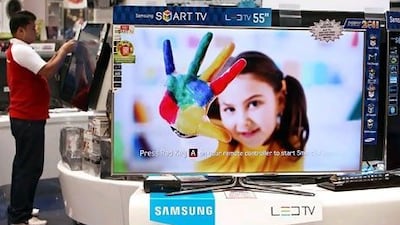There was a time when Eidiya, the money given to buy gifts at Eid, was spent on clothes with perhaps a little left over for games and toys.
Coming soon High-tech treats
Limited Edition Kinect Star Wars Bundle Microsoft recently unveiled its first white Kinect sensor and custom-designed console and controller based on popular Star Wars characters R2-D2 and C-3PO
Logitech Wireless Solar Keyboard This keyboard charges itself whenever there is light – and stays charged for at least three months in total darkness, Logitech claims. The keyboard is aimed at eliminating battery problems that accompany many wireless keyboards on the market.
Fujitsu Waterproof Windows Phone 7 While Microsoft and Nokia are still to unveil a Windows Phone 7 with the software version codenamed Mango, Fujitsu have done so already, but on a waterproof handset. What is more notable is that it has a 13.2 megapixel camera with Autofocus, 720p video recording and 32GB of flash storage built-in.
As the end of this holy month approaches, however, children of all ages will more likely be scouring the Web looking for the latest gadgets from Apple, Nintendo and Microsoft, all of which have new high-tech toys on the way.
Apple's iPhone 5, which is rumoured to be launched next month, has had its features and official launch date kept secret. However, gossip has emerged about the device featuring facial recognition, an edge-to-edge screen, voice control and a curved design.
Apple product announcements have consistently set the smartphone and tablet trend over the years, leaving rivals such as Samsung with its Galaxy range to play catch-up.
Google, Microsoft and Nokia will also be closely watching Apple's next move.
Google's acquisition of Motorola Mobility last week signalled its intention to take on Apple in the smartphone space by now having the hardware capability to build phones and mobile computing devices.
Yet it could be a few years until the search giant releases a phone, and when that happens, Motorola is likely to maintain its brand identity, says Magnus Nystedt, the editor of PCWorld Middle East.
"Motorola as a brand name is really, really strong. It stands for something, quality," says Mr Nystedt. "It's a brand name they want to keep."
On the other hand, Microsoft has already had its Windows Phone 7 operating system appear on numerous phones such as the Samsung Omnia 7, but the US company has been readying with Nokia to release a phone possibly later this year.
At the end of the second quarter this year, Microsoft had just 1.6 per cent of the global smartphone operating system market, according to the information technology research company Gartner, but it has potential to do well in the next six months with Nokia's backing.
"A company like Nokia has got lots of bad press of late of producing devices that from a physical sense are absolutely amazing. [On] their hardware side they're brilliant, they're really attractive looking phones," says Thomas Shambler, the editor of Stuff Middle East magazine. "But it's always been a let down by their Symbian kind of old-school operating system, so the software hasn't been there."
It's not just competition in the smartphone and tablet world where Apple has set the trend. The company's other popular product, the MacBook Air, has inspired Intel to conceptualise what it has called Ultrabooks. The small notebooks will cost twice as much as the average tablet at more than US$1000 (Dh3,673), offer a low-voltage Intel Core processor, a frame no thicker than 21mm, at least five hours of battery life and fast boot times.
The battle for our computing attention, though, is also coming from another source, the television.
Smart TVs can connect to the internet, either by using built-in Wi-Fi or an Ethernet cable connected to the back of the set. The result is a television that lets users access video streaming services to watch what they want to watch when they want to watch it, and use television applications - similar to mobile applications developed for smartphones.
Another high-tech trend that could be played out on these TV sets in our living rooms is that of movement games, first pioneered by Nintendo with its Wii console and then adopted last year by Microsoft with its Xbox Kinect motion sensor.
Kinect allows people to play games without the need for a controller by simply using body movements, making it popular with more casual gamers who have taken to titles such as Dance Central.
The Kinect sensor could be an important device for Microsoft as it seeks to counter the drop in console sales facing competition from the rise of casual gaming on tablets, phones and social networking sites.
Microsoft is set to launch big name games later this year - Star Wars Kinect and Gears of War 3 (which will be compatible with Kinect and which has already received more than a million pre-orders).
And as Mr Shambler says: "We are going to see a lot more arms flailing in front of our TVs."

